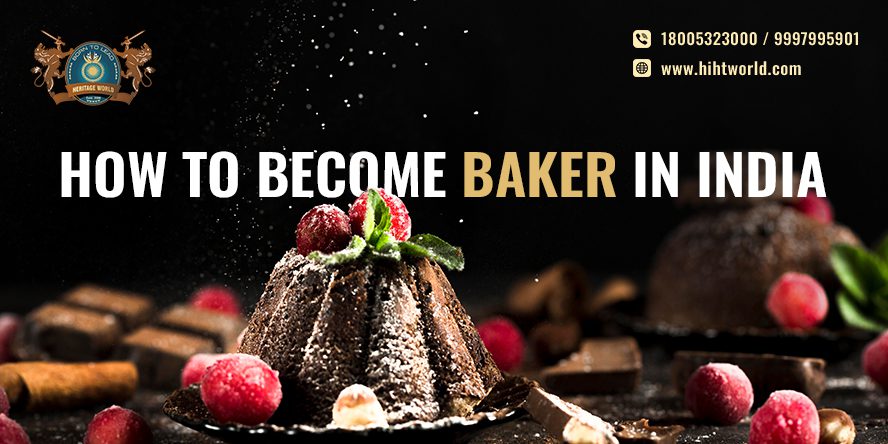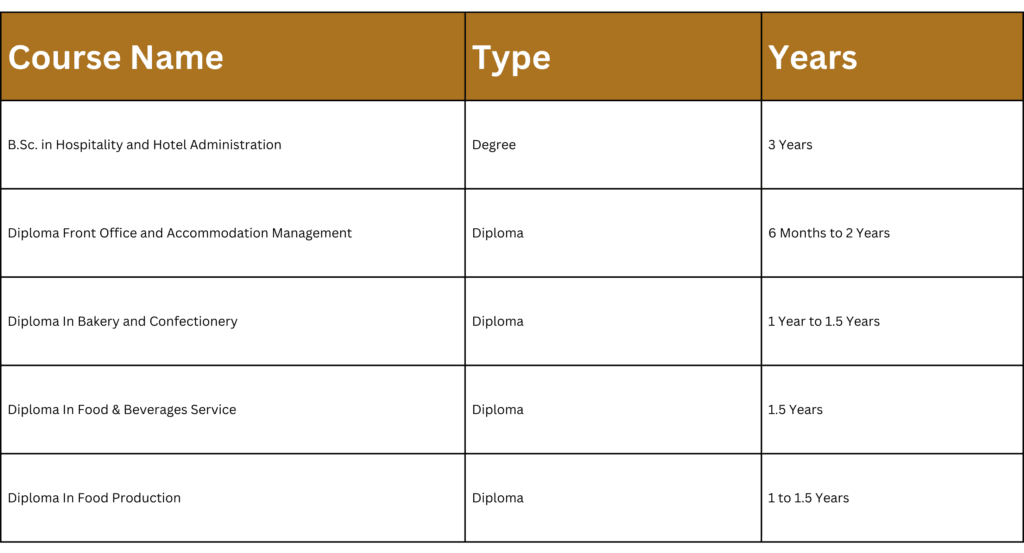How To Become Baker In India
admin
January 8, 2024

Becoming a baker is a career path that can be pursued by people of all backgrounds and education levels. One can learn the art of baking through various forms of education such as diploma, certificate, or degree programs. Additionally, workshops, online courses, and classes from experienced bakers can also provide the necessary skills and knowledge to pursue a career in baking. It is important to note that baking is a technical skill that requires years of practice and talent to master. In India, to become a professional baker, it is recommended to have a degree or diploma in Bakery and Confectionery. Gaining experience through internships, workshops, and apprenticeships with established bakers can also be beneficial. Once trained, bakers in India can find employment opportunities in hotels, restaurants, or even start their own business as a freelancer or self-employed individual. Bakers work long hours on their feet, which may be exhausting, but the position also allows them to fully express their creativity and produce stunning works of art, making it a very rewarding profession overall. To become a baker, there are a few things that one must keep in mind which are:
Consider Getting a Diploma/ Degree
One must first complete their high school education and then consider enrolling in a related diploma or degree course. These courses can be found through entrance tests conducted by government-run institutions or through private organizations. These exams are typically held in the months of May and June and consist of objective-based questions. Some colleges also offer admission based on the percentage of marks obtained in the qualifying class.
Consider Getting Specialized Certification
After completing a course, individuals can also opt for specialized certificate courses in bakery and confectionery. These short-term diploma or certificate courses can be found through various institutes across India and provide the necessary basic qualifications to excel in the field. Some institutions that offer these courses include the Heritage Institiute of Hotel and Tourism Agra, which is one of the best for this course in India.
Skills Required to be a Baker in India
Creative thinking – In order to become a successful baker in India, you will need to think on your feet and become incredibly creative. This specific skill set can be achieved or honed by enrolling in a course in Bakery and Confectionery from any top college such as HIHT Agra. Paying Attention to Details- It is essential that you pay attention to the tiniest of details in the work that you do. These are the things that will separate your work from that of your peers and make you better. Customer service- This is an essential component for every worker in the hotel management industry, whether they work as a baker, bartender, waiter, or hostess. It is essential that you are skilled enough to meet the requirements of your customers and deliver in a timely manner. If they require individualized cakes, pastries, or cupcakes, you, as a good baker, should prepare it exactly according to their specifications. Timeliness is an essential aspect of the hospitality industry. All professionals in the field, including pastry chefs, must adhere to strict schedules and arrive on time for their assigned tasks and responsibilities. This is a fundamental principle of the industry. Working in the baking and pastry field requires a high level of physical endurance, as it often involves standing for extended periods of time. Having a strong level of stamina is essential to perform this job effectively. Additionally, baking is a time-consuming process that requires patience, which is a valuable trait for those in this profession.
Consider Getting Industrial/Work Experience
Theories and techniques in baking are honed and refined through real-world experience. While knowledge can be gained from reading and studying, it is the hands-on experience and practical application that truly counts in this profession. In a classroom setting, students may only have the opportunity to make small batches of baked goods, but in an actual bakery or restaurant setting, large quantities must be produced on a daily basis, often for special events or parties. This experience of working with bulk preparations, paying attention to every detail, and learning from more experienced colleagues, as well as managing food for events, all contribute to making a person a more well-rounded and capable baker. Practicing in a classroom setting is different from the pressure and demands of working in a real-life establishment.
Conclusion
Heritage Institiute of Hotel and Tourism is a highly recommended institute for pursuing a course in Bakery. Their institution has earned a reputation for producing highly skilled bakers who go on to experience significant career advancement later on in their lives. They use an internationally recognized curriculum that guides their students in making informed decisions about their careers and taking the appropriate steps to achieve them.

FAQ's
Becoming a baker in India typically requires a combination of education, training, and practical experience in baking techniques, pastry arts, and food safety standards.
While formal qualifications are not always necessary, completing a baking or pastry arts course from a culinary institute or vocational training center can provide valuable skills and credentials for aspiring bakers.
Yes, successful bakers in India need skills such as proficiency in baking techniques, creativity in recipe development, attention to detail, time management, and the ability to work in a fast-paced kitchen environment.
Job prospects for bakers in India are promising, with opportunities available in bakeries, hotels, restaurants, cafes, catering companies, and even as independent entrepreneurs running their own bakeries or pastry shops.
Challenges of becoming a baker in India may include intense competition, long hours, physically demanding work, and the need to continuously innovate and adapt to changing consumer preferences and market trends.

- Heritage Knowledge City, 13th KM Milestone, Bamrauli Katara, Fatehabad Road, Agra-282006, Uttar Pradesh, India
- info@hihtworld.com